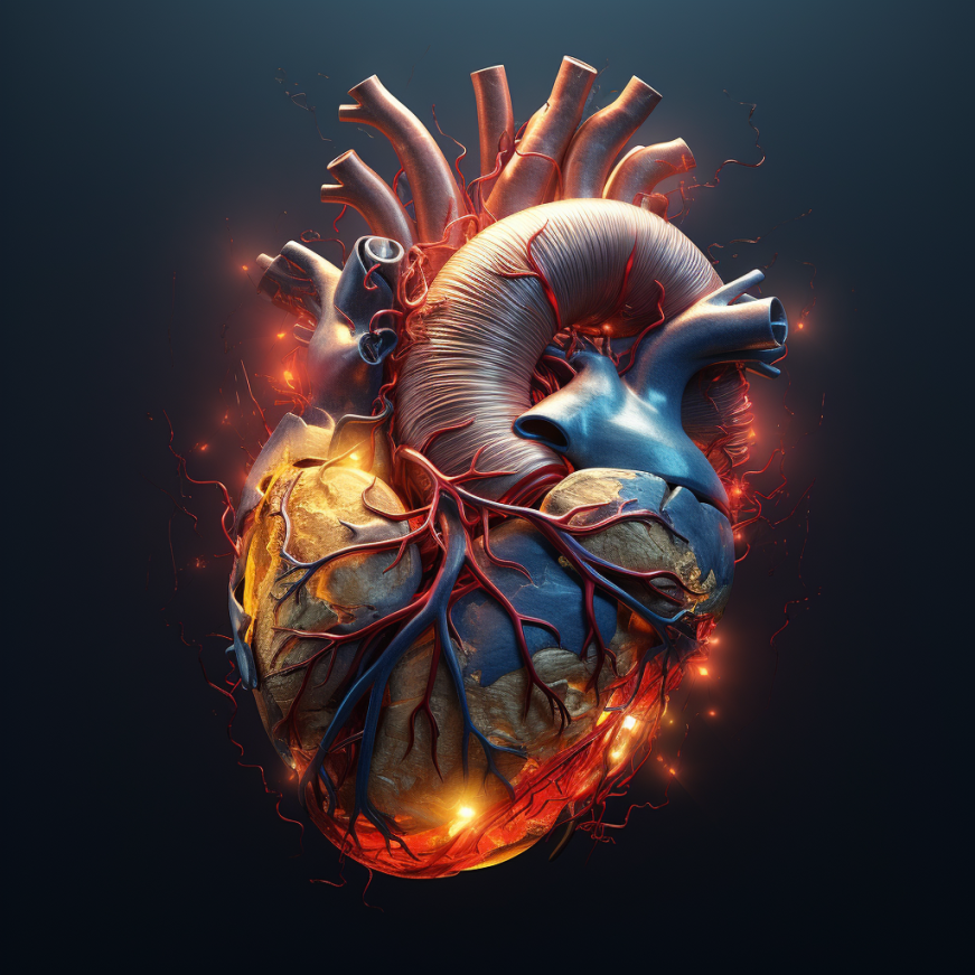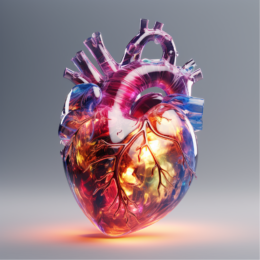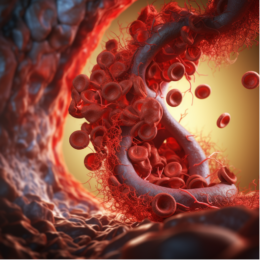Understanding Heart Arrhythmia: What You Need to Know

Hey, lovelies! Hope you’re having a fabulous day! Today, we’re about to talk about something that, quite literally, keeps your heart ticking. You guessed it! We’re talking about heart arrhythmia. So cozy up with a hot cuppa because we’re diving right in! And while you read, please feel free to share your own experiences. Have you or someone close to you experienced heart arrhythmia? Let’s get chatty!
What Is Heart Arrhythmia?
Heart arrhythmia is when your heart says, “I’m gonna dance to my own beat!” In medical lingo, it’s a condition where the heart beats irregularly, too fast, or too slow. It can happen at any age, affecting young and old alike.
Statistics:
- According to the American Heart Association, more than 2.7 million Americans live with atrial fibrillation, one of the most common types of heart arrhythmias.
- One in four adults over the age of 40 could develop an arrhythmia, according to a study published in the journal “Circulation.”
Meet Sarah, a 40-year-old yoga instructor. She’s all about chakras and good vibes. One day, while leading her class through a sun salutation, she felt her heart do a samba inside her chest. She shook it off as stress but eventually learned she had a mild arrhythmia. More on her later!
How Is Heart Arrhythmia Diagnosed?
Diagnosing heart arrhythmia is a crucial first step toward effective management. Doctors employ various methods to identify irregular heart rhythms, including:
- Electrocardiogram (ECG or EKG): This painless test records the electrical activity of the heart, helping doctors spot irregularities.
- Holter Monitor: A portable ECG device worn for a day or more to capture irregularities that may not occur during a short office visit.
- Event Monitor: Similar to a Holter monitor but used for longer periods to capture infrequent episodes of arrhythmia.
- Stress Test: Measures the heart’s response to stress and exercise, potentially revealing arrhythmia triggered by physical activity.
- Electrophysiology Study (EPS): Invasive procedure where a catheter is inserted into the heart to map electrical signals and pinpoint the source of the arrhythmia.

Heart Arrhythmia Symptoms
Recognizing the symptoms of heart arrhythmia is vital for seeking timely medical attention. Common symptoms include:
- Palpitations (feeling of rapid, strong, or irregular heartbeat)
- Dizziness or lightheadedness
- Shortness of breath
- Chest pain or discomfort
- Fatigue
- Fainting (syncope)
It’s important to note that some individuals may not experience any noticeable symptoms, making regular check-ups and screenings essential, especially if you have risk factors such as a family history of heart disease.
Quick Poll
Causes of Heart Arrhythmia
- Heart Disease: One of the primary causes of heart arrhythmia is underlying heart conditions. Conditions like coronary artery disease, heart attack (myocardial infarction), and heart valve disorders can disrupt the heart’s electrical system, leading to irregular rhythms.
- High Blood Pressure (Hypertension): Chronic high blood pressure can put extra strain on the heart and its electrical system, increasing the risk of arrhythmias.
- Smoking: Smoking and exposure to secondhand smoke have been linked to an increased risk of arrhythmias. The chemicals in tobacco can interfere with the heart’s electrical signals.
- Excessive Alcohol Consumption: Heavy drinking can disrupt the heart’s electrical pathways and lead to arrhythmias. It’s important to moderate alcohol intake to reduce this risk.
- Caffeine and Stimulants: Consuming excessive amounts of caffeine, found in coffee, tea, and energy drinks, as well as certain stimulants, can trigger arrhythmias in some individuals.
- Medications: Some medications, including certain asthma drugs, antihistamines, and over-the-counter cold and cough medications, may have ingredients that can provoke arrhythmias, especially when taken in large quantities.
- Stress and Anxiety: High levels of stress and anxiety can lead to the release of stress hormones, which can affect the heart’s electrical system. Stress management techniques can be beneficial for those prone to arrhythmias.
- Genetics: Some individuals may have a genetic predisposition to arrhythmias. If there’s a family history of heart arrhythmia or sudden cardiac death, it’s essential to inform your healthcare provider.
- Structural Heart Abnormalities: Birth defects or structural abnormalities in the heart’s chambers or valves can disrupt the normal electrical pathways, leading to arrhythmias.
- Infections: Certain infections, such as myocarditis (inflammation of the heart muscle), can directly affect the heart’s electrical system, causing arrhythmias.
- Hormonal Changes: Hormonal imbalances, such as thyroid disorders, can contribute to irregular heart rhythms. Ensuring proper thyroid function through medication or treatment can help manage this risk.
- Electrolyte Imbalances: An imbalance in essential electrolytes like potassium, sodium, calcium, and magnesium can affect the heart’s electrical signaling. Maintaining a balanced diet is crucial for preventing such imbalances.
Understanding the underlying cause of your arrhythmia is crucial for determining the most appropriate treatment plan.
How to Treat Heart Arrhythmia
Treatment options for heart arrhythmia depend on its severity and underlying causes. Here are some common approaches:
- Lifestyle Modifications: Making healthy lifestyle choices, such as quitting smoking, reducing alcohol and caffeine intake, and managing stress, can help alleviate symptoms.
- Medications: Your doctor may prescribe medications to control your heart rate or rhythm.
- Cardioversion: This procedure involves applying electric shocks to reset the heart’s rhythm to normal.
- Catheter Ablation: A minimally invasive procedure where a catheter is used to destroy the tissue causing the arrhythmia.
- Implantable Devices: Devices like pacemakers and implantable cardioverter-defibrillators (ICDs) can help regulate the heartbeat.
- Surgery: In severe cases, surgical interventions, such as Maze surgery, may be necessary.
Prevention of Heart Arrhythmia
Preventing heart arrhythmia involves adopting a heart-healthy lifestyle:
- Maintain a balanced diet low in saturated fats and cholesterol.
- Engage in regular physical activity.
- Manage chronic conditions like high blood pressure and diabetes.
- Limit alcohol and caffeine intake.
- Avoid smoking and secondhand smoke.
Remember, early detection through routine check-ups is essential for timely intervention.
Conclusion
Whether your heart does an occasional tango or has a consistent off-beat, understanding heart arrhythmia can be the first step in reclaiming your health. If Sarah can combine yoga with other treatments to balance her heartbeat, then so can you!
PLEASE SHARE YOUR EXPERIENCE AND THE COMMENTS BELOW, SO WE CAN HELP EACH OTHER WITH THE KNOWLEDGE YOU HAVE GAINED.
References:
- American Heart Association. (2021). Arrhythmia. https://www.heart.org/en/health-topics/arrhythmia
- Mayo Clinic. (2021). Heart arrhythmia. https://www.mayoclinic.org/diseases-conditions/heart-arrhythmia/symptoms-causes/syc-20350668





